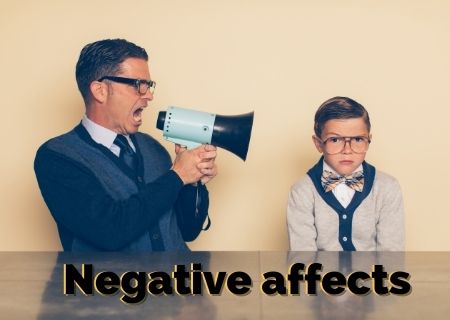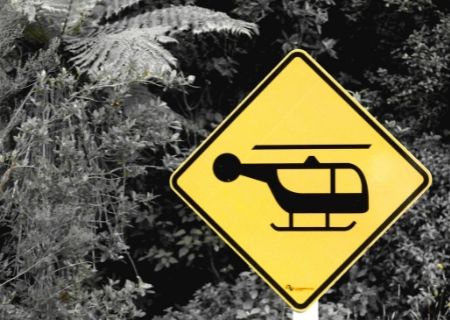Okay, let’s face it: raising a child is hard. Half the time, we feel like we’re doing everything wrong, and the other half, we’re fuming at the thought of someone correcting our parenting technique. If you’re one to shelter your kid from harm, like many of us do, you may have heard the term helicopter parent. But what is it?
Helicopter parenting is an approach to raising children that involves excessive levels of involvement and control. This approach can have negative effects on children and even hinder their ability to develop independence, self-confidence, and life skills.
Helicopter parenting has been stereotyped as ineffective and overbearing and categorized as an intensive parenting style. Every parent wants their children to be happy and do well for themselves. However, there are some parents who may take parenting to another level and hover over their children in everything they do. Read on to find out what helicopter parenting looks like and how to tell if you are guilty of it.
What Is a Helicopter Parent?
We all want our children to be happy and do well for themselves. But some parents go above and beyond to be overbearing.
The term ‘helicopter parenting’ is used to describe extremely close and involved parenting. Instead of encouraging kids to think for themselves, these parents hover and intervene as soon as any kind of problem might arise. It is often referred to as over-parenting, as it involves excessive control and monitoring of the child’s life.
As a toddler starts to develop a sense of independence, a helicopter parent may spend all their time hovering over the child, playing with them, and directing their behavior. They might not give the child any space to do things on their own.
As they get older, the parent may ensure that they get a certain teacher or coach, pick their friends and extra-curricular activities, and even do their homework and chores. Helicopter parenting can also show up in adulthood, some parents going as far as to contact places of employment or intervene in relationships.
Why Do Parents Hover?
Helicopter parenting often comes from a place of taking an active interest in their children’s lives. They’re trying to help them to succeed and protect them from pain and disappointment. However, while many aspects of this parenting style might seem like one of the best methods to raise healthy, successful children, being a helicopter parent can sometimes backfire and do more harm than good.
Helicopter parenting can develop for a number of reasons. The desire to keep your child safe and happy is a natural part of parenthood. Feelings of anxiety about the economy and the world in general, the fear of dire consequences, and the need to make up for or remedy other areas they may be lacking in—these are just some of the reasons parents may take on a hover-like parenting style.

Helicopter Parenting May Negatively Affect Children’s Emotional Well-Being
Although some aspects of helicopter parenting can be a good thing, it can also have adverse effects on a child’s emotional well-being. Low self-esteem, burnout, and feelings of inferiority are potential examples.
That’s because when a child becomes older, they start to doubt themselves and their abilities. Children of helicopter parents are used to their parents handling their problems for them and showing them that they aren’t capable of independence. They might think that their parents don’t trust them to make decisions, or they may not have confidence in themselves.
Children need to learn from their mistakes, and limiting these opportunities through helicopter parenting can make things harder on them as they reach adulthood.
Researchers at Florida State University surveyed college students and found that kids with helicopter parents are more likely to experience burnout due to schoolwork and have a harder time transitioning once they graduate.
Signs You Could Be a Helicopter Parent
Helicopter parents are typically proud to be so involved in their children’s lives and don’t see anything wrong with their parenting style. These parents are likely to have high levels of anxiety and often see their actions as a way to ensure their child’s safety while helping them be successful in the world.
There is a fine line between hovering just enough to your child to guide them and becoming overbearing. Below are some of the most popular signs of helicopter parenting:
- Keeping your kid on a short leash instead of creating age-appropriate opportunities for independence.
- Doing chores for your kids, like making their bed, cleaning their room, or doing their laundry.
- Not letting them take physical and mental risks.
- Doing homework assignments to make sure they are “done right.”
- Fighting your child’s battles, such as calling a parent after an argument with a friend.
- Choosing who they play with and how they play.
- Not letting your children participate in age-appropriate activities.
- Not allowing your kid to make mistakes.
- Calling the school to pick which classes your child will be in.
- Micromanaging teachers and coaches instead of teaching your kid how to talk to these adults on their own.
How To Avoid Helicopter Parenting
As a parent, you have a tough job. You need to find the balance between keeping an eye on your children and giving them just enough space to grow into successful adults. As painful as it may be, getting them there means they need to experience some struggle and suffering.
Let your kids be disappointed. Let them fail. Give them the helmet and elbow pads, then let them fall. This will teach them how to handle problems when you aren’t there to pick up the pieces.
Will this create a bit more anxiety for you at the moment? Possibly. But as your kids get older, you will worry less and less because you can trust that they are growing into capable adults.
Final Thoughts
Helicopter parenting is all bad, but it doesn’t do your kid any favors in the long run.
The best thing you can do for your kids is to let them make their own mistakes and learn from those experiences while showing them that you are available if they need guidance. This will give them the opportunity they need to develop and grow as a person and find independence and success in adulthood.

